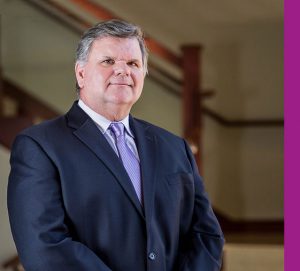 Q: My association levied a special assessment to fund a repair project to our clubhouse. The project is now complete and there is money left over from the special assessment. The board has been discussing what it should do with this money and has not yet come to an agreement. Isn’t the association obligated to refund the excess funds from the special assessment to the members? (M.O., via e-mail)
Q: My association levied a special assessment to fund a repair project to our clubhouse. The project is now complete and there is money left over from the special assessment. The board has been discussing what it should do with this money and has not yet come to an agreement. Isn’t the association obligated to refund the excess funds from the special assessment to the members? (M.O., via e-mail)
A: From your question, it is not clear what type of community association your association is. The answer can be different depending on whether you live in a condominium association or a homeowners’ association.
With regard to condominium associations, Section 718.116(10), Florida Statutes, provides in relevant part that: “The funds collected pursuant to a special assessment shall be used only for the specific purpose or purposes set forth in such notice. However, upon completion of such specific purpose or purposes, any excess funds will be considered common surplus and may, at the discretion of the board, either be returned to the unit owners or applied as a credit toward future assessments.”
Therefore, if your association is a condominium association, governed by Chapter 718, Florida Statutes, the excess funds from a special assessment must either be returned to the unit owners or applied as a credit towards future assessments.
However, if your community is a homeowners’ association governed by Chapter 720, Florida Statutes, the Florida Homeowners’ Association Act, the answer is not as clear. Chapter 720 does not contain language similar to Chapter 718, discussed above. Therefore, there is no express obligation for the association to either refund the excess special assessment proceeds or apply such funds to future assessments. The governing documents for a homeowners’ association may address how surplus funds must be treated by the association. Regardless, the funds would still be assessments derived from the owners and could only be used for proper common expenses of the association.
Q: I recently purchased a unit in a condominium association and have begun attending the board meetings. At the last board meeting, there was a discussion of amendments that the board is considering putting to a membership vote at the next annual meeting. Some of the amendments involve new regulations on what can be done at the condominium, including limitations on guest occupancy. I was under the impression that any changes to the condominium documents would require unanimous approval of all owners since they are affecting our property rights. Am I correct? (N.B., via e-mail)
A: Typically no. The specific level of approval for amendments to your condominium documents would ultimately depend on the amendatory provisions in the documents. However, Section 718.110(1), Florida Statutes, provides that for every condominium association created after April 1, 1992, the declaration may not require approval of more than four-fifths of the total voting interests for most amendments.
There are certain types of amendments that do require the approval of all unit owners, as well as all lien holders on units in the condominium. However, these amendments involve changes to the configuration or size of any unit, altering the appurtenance to a unit, or changing the proportion or percentage by which the unit owner shares in the payment of common expenses of the condominium. Setting aside these types of amendments, amendments that generally regulate the use of the condominium do not require unanimous approval and only require the level of approval stated in the condominium documents. Again, this level of approval cannot be more than four-fifths of the total voting interests for a condominium created after April 1, 1992. Therefore, in order to determine what vote is required to amend the condominium documents for your association, you would have to review the amendatory provisions of your documents.
Joe Adams is an attorney with Becker & Poliakoff, P.A., Fort Myers. Send questions to Joe Adams by e-mail to jadams@beckerlawyers.com. Past editions may be viewed at floridacondohoalawblog.com.